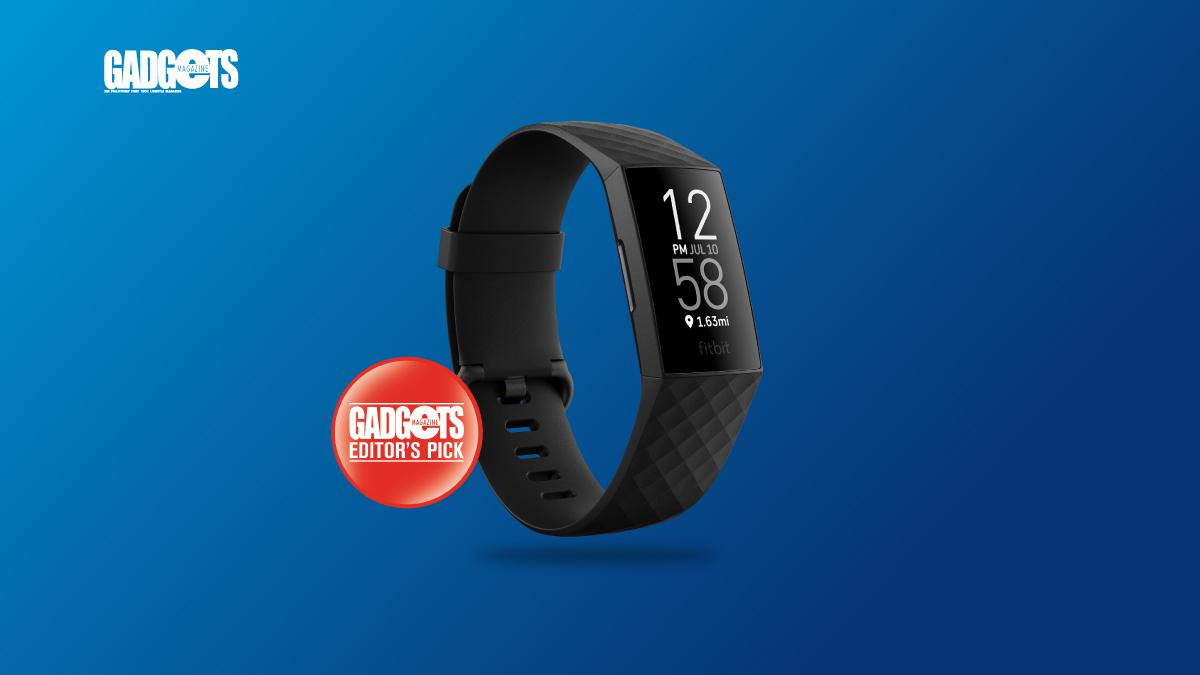This will be my third review of a Fitbit Charge in four years, having first checked out the Charge HR2 in 2016, then the Charge 3 in 2018. I’ve had a Fitbit in one form or another on my wrist virtually 24/7 over the past 5 years, until I won an Apple Watch in a media raffle last Christmas 2019. After a 6-month break from the Fitbit ecosystem, I must admit I’m glad to be back.
DESIGN: 3.5/5
Except for very minor, hardly noticeable details, the Charge 4 looks much the same as its predecessors, which is why I’ve downgraded my score in the design category. Looks will not be the compelling reason for why anyone would want to upgrade from an earlier model.
Instead of the aluminum case on the Charge 3, the Charge 4 casing is now made of plastic resin in either black or rosewood. A color-matched classic wristband makes for a nice unibody look. There is an option for a storm blue wristband/black tracker combination, and on the Special Edition, a granite reflective woven band with a black tracker.
The unified color scheme disguises the fact that the Charge 4 is slightly thicker than its predecessor, although it is still light enough to be comfortably worn the whole day.
HARDWARE: 4/5
The Charge 4 has the same basic equipment and components as other Fitbits. An optical heart rate monitor calculates blood flow using light detectors and tracks pulse rate every 1-second when exercising and every 5-seconds at other times. A 3-axis accelerometer and altimeter track movement and elevation, and the new GPS feature now also tracks location. A vibration motor buzzes gently for discreet notifications, alarms, and reminders. Connectivity is via Bluetooth 4.0 for syncing with a smartphone and for Spotify controls. It also has NFC for Fitbit Pay, a tap-to-pay feature that’s not yet offered in the Philippines. It is powered by a lithium-polymer battery that fully charges in two hours and can last up to 7 days or 5 hours with continuous GPS use.
USER EXPERIENCE: 4.5/5
I have missed my Fitbit! While the Apple Watch Series 5 is packed with a lot of bells and whistles, I must be honest and say I don’t actually need all those apps on my wrist. The Fitbit Charge 4 gives me exactly what I need and want—without the extraneous stuff.
As usual, out of the box, I placed the tracker into its custom charger, paired it to my phone, added it to my Fitbit app, and then completed the firmware update. It was then good to go.
Once synced with my phone, I chose my preferred clock face as well as apps/settings. Installing the Charge 4 gave me a free 90-day membership to Fitbit Premium which offers app enhancements like advanced sleep analytics, a wellness report, guided programs, mindfullness sessions, video workouts, as well as fun games and new challenges. After 90 days, I will have to decide if it’s worth paying PHP 519 monthly or PHP 4,190 per year for continued access to these features.
Back to the Charge 4 experience, one major upgrade is the addition of built-in GPS for real-time information during outdoor activities like running, biking, etc. A word of caution, though, it drains your battery pretty fast, so be sure your Charge 4 is fully charged before you head out.
Another new feature is Spotify Connect & Control that let you choose which device you’d like to play your music on—your phone, laptop, TV or other Connect-enabled speakers. You can choose your playlist, shuffle, skip content, and like songs on the Charge 4. The only catch is that you need to be a Spotify Premium subscriber to be able to enjoy this feature.
Personally, the one feature I like best about Fitbit devices is its sleep tracker, which even Apple cannot match. With the latest updates, Fitbit’S Sleep Tools provide better insight into the oft-neglected health essential, sleep quality. Based on heart rate, restlessness, time awake, and sleep stages, you get a daily Sleep Score. In my case, I find it very motivating waking up to a good score, knowing that I am well-rested and ready to face another day. A poor score, on the other hand, motivates me to try to get to bed earlier.
Although the Fitbit trackers are targeted at health-conscious individuals with active lifestyles, I am quite happy to just know how many steps I took through the day (and celebrate when I hit my steps goal). Being prone to occcasional arrhythmias, it’s also reassuring to be able to see what my current heart rate is, just by lifting my wrist.
What don’t I like about the Charge 4? There’s really just one thing that irks me—you need to tap quite hard on the screen, or lift your wrist rather vigorously, to wake it up. Plus, why don’t we get Fitbit Pay?
VALUE: 4.5/5
The Fitbit Charge 4 carries a PHP 9,590 price tag, actually cheaper than the PHP 9,990 sticker price on the Charge 3 when It launched two years ago. Considering that this is a device you’ll probably be wearing 24/7, that’s not a bad deal.
Specifications:
- Display: Backlit OLED greyscale touchscreen
- Sensors: 3-axis accelerometer, optical heart rate monitor, GPS, altimeter, NFC
- Components: Vibration motor
- Connectivity: Bluetooth 4.0
- Battery: Lithium-polymer, 2-hour charge time (0-100%), up to 7 days battery life or 5 hours with continuous GPS use
- Memory: 7 days detailed motion and heart rate minute by minute data, 30 days daily totals
- Water resistance: Up to 50 meters
- Materials: plastic resin case, flexible band with stainless steel buckle
What’s Hot:
- Same reliable Fitbit features with some add-ons
- Now has GPS and links to Spotify
What’s Not:
- Looks the same as previous models
- Touch display is not very responsive
Bottomline:
The Fitbit Charge 4 is officially my new 24/7 companion.
Reviewed by Maribelle Alba
Also published in Gadgets Magazine July 2020
